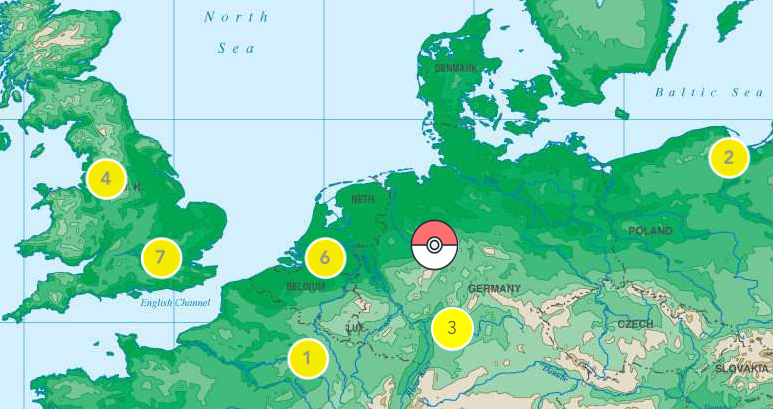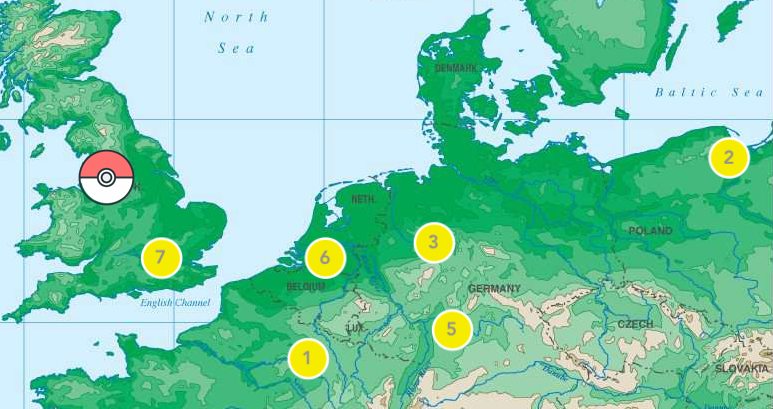A bit more on gamification...
It’s been a few weeks. Since last you heard from me the ALX Xcelerator graduated its first class, and ALU Mauritius did the same. The latter was a long time coming and a feat that occasioned a solid week of celebrations.
A great question from my friend Jorian regarding Buzzwords That Won’t Die: Gamification -
Can everything be gamified?
I love this question, and I think the answer goes back to the question of interest posed by Dewey. Some things don’t need to be gamified - the level of inherent interest is already high enough (think about some major scientific breakthroughs, and a lot of scholarly work in general - people don’t need a game element to stimulate interest); some things don’t need to be gamified because the existing reward system attached to them is already strong enough inducement (this is basically the entire financial system, but also a lot of things where there could be prestige or recognition associated). In both of those cases, people will do things that are difficult and possibly even mundane because there’s some greater goal that they already connect to.
The class of things I think you’re asking about are things that may be difficult or tedious or both. In those cases, I would say that gamification can be a short term bridge from an initial spark of interest to achieving a level of competence, but it won’t necessarily be sustained. There has to be some initial level of interest, though, regardless of why that interest exists in the first place. One of the great examples of this that I remember was a game that was developed to teach safety standards to train operators - they created a story-based game that was about a terrorist attack on a train, and the only way to stop it and regain control of the train was through following certain safety standards. The game itself was basically just a repetition of this structure:
• narrative, leading to
• Task-based challenge, leading to
• pretty straightforward information consumption (like, read some text on a screen), leading to
• decision-based gameplay applying the information just consumed, leading to
• Advancement of the narrative
I think of that as good gamification - it draws on the fact that these people are already interested in this topic because it’s necessary for their job, but learning about safety is tedious, so they appeal to the existing interest and make it more interesting in order to stimulate learning.
But games won’t always be the best way to stimulate existing interest - I would see something like Strava as a good example. It seems like one of the least “gamified” fitness apps, built what it appeals to instead is social connection. (Note: I don’t use Strava...this is based entirely on my interactions with Strava users showing me their routes and the responses they received from other people)
So, long story short, I guess the answer is: everything probably can’t be gamified, but everything can probably be made more fun - at least for a short period of time (and that period of time is directly related to some combination of how strong the initial interest is and how much the intervention stimulates further interest). I don’t think there’s necessarily an easy heuristic by which to figure out what that is, aside from good old understanding the end user.
• While we’re here, Mena sent me this article about gamification for civic initiatives. It seems like a lot of good examples of attempts to make difficult things more accessible through gaming. It also includes this gem, “...online shoe store Zappos and hotel giant Marriott are among the companies to have learned to their cost that designing a game that is both fun to play and promotes a beneficial outcome can be devilishly difficult.” You don’t say...
• If you want to go a bit deeper on this, check out Institute of Play, and if you really want to geek out a bit then see how some good gamification practices are being applied at Quest 2 Learn - a game-based learning school in NYC. Side note: since I first drafted this IoP has announced that they’re shutting down, but the resources they’ve developed over the years are still great (and I’m happy that they’ll live on through the Connected Learning Initiative at UC Irvine).





